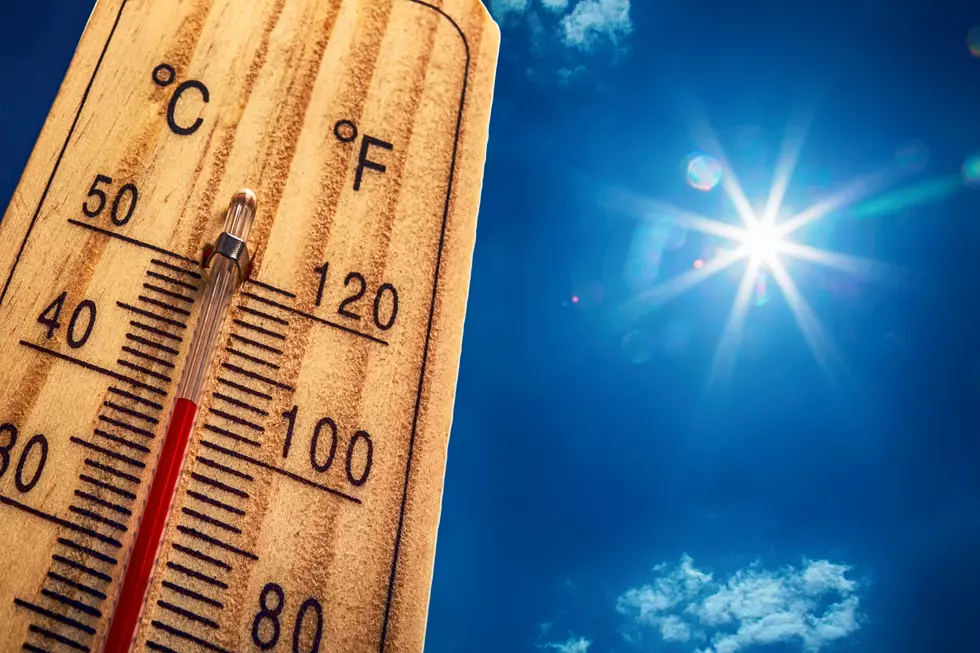
If You Think It was Hot At Kalamazoo’s Ribfest, Just Wait 30 Years
Depending on what side your politics fall on, you're either going to agree or disagree with what you read here. But the finest weatherman in the country, WGN-TV, Chicago's Tom Skilling says if you think it was hot last weekend, it's only going to get worse. A lot worse; as in consider buying stock in a company that makes underarm deodorant, and one that makes fans, or air conditioners.
If you look at the map in Skilling's post, you see only about three counties in Michigan, but as luck would have it, one of them is Kalamazoo. Now, I understand these are just predictions, but these scientists, while not exactly on every forecast, generally are pretty accurate.
In addition to what's above,
The impact of heat waves grows when temps at night remain elevated. We saw that in Chicago in July 1995 when 773 perished in a heat wave which included triple-digit daytime heat indices--but also three nights in the city in which temps failed to drop below 80-deg. Studies of that event showed deaths increased exponentially when nighttime temps failed to cool. - WGN-TV Meteorologist Tom Skilling on Facebook
That same post quotes an Associated Press story saying this July's "nighttime temps across the country were the highest in 128 years of record. Such warmth has real-life implications...(with) NOAA climatologist Karin Gleason saying “When you have daytime temperatures that are at or near record high temperatures and you don’t have that recovery overnight with temperatures cooling off, it does place a lot of stress on plants, on animals, and on humans. It’s a big deal.”

Get our free mobile app
Some of us won't be around in 2053, but for those who are, get ready to be hot and sticky.
LOOK: The most extreme temperatures in the history of every state
Stacker consulted 2021 data from the NOAA's State Climate Extremes Committee (SCEC) to illustrate the hottest and coldest temperatures ever recorded in each state. Each slide also reveals the all-time highest 24-hour precipitation record and all-time highest 24-hour snowfall.
Keep reading to find out individual state records in alphabetical order.
LOOK: The most expensive weather and climate disasters in recent decades
Stacker ranked the most expensive climate disasters by the billions since 1980 by the total cost of all damages, adjusted for inflation, based on 2021 data from the National Oceanic and Atmospheric Administration (NOAA). The list starts with Hurricane Sally, which caused $7.3 billion in damages in 2020, and ends with a devastating 2005 hurricane that caused $170 billion in damage and killed at least 1,833 people. Keep reading to discover the 50 of the most expensive climate disasters in recent decades in the U.S.
More From 107.7 WRKR-FM








